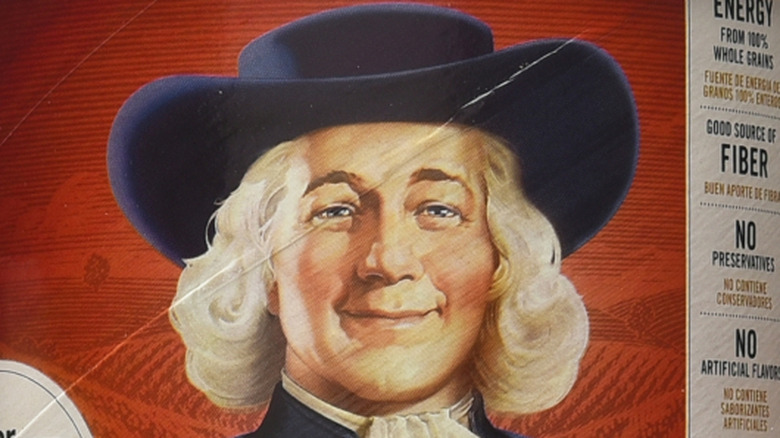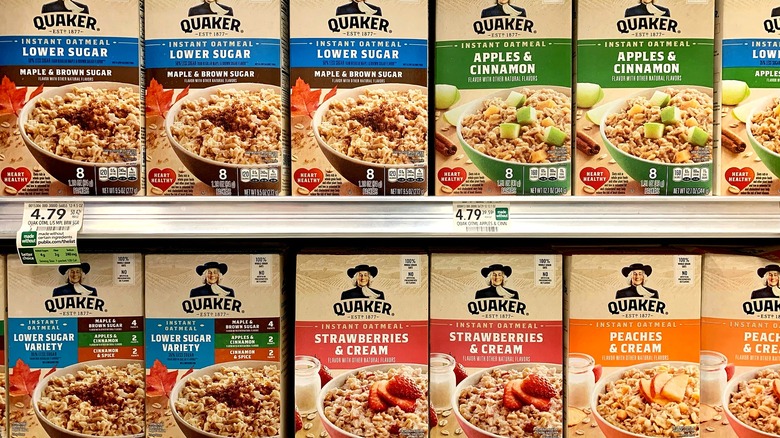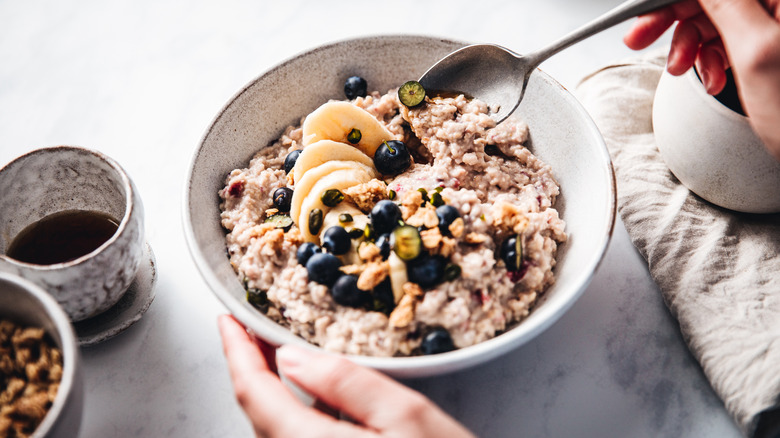Who Is The Quaker Oats Guy?
If you've ever poured a bowl of oatmeal or munched on a granola bar, you've likely been greeted by the smiling face of the Quaker Oats man. Known affectionately as "Larry" internally by the brand, his friendly, wholesome image has been a symbol of breakfast tables for over a century. But here's the twist: The man on the box isn't a real life person. He's not William Penn, nor any historical figure. In fact, Quaker Oats founders Henry Seymour and William Heston weren't even Quakers themselves. They chose the name and image because Quakers (who practice the religion of Quakerism) were widely regarded as honest, trustworthy, and pure — qualities the duo hoped would be associated with their new oat company.
This marketing strategy helped the brand quickly build consumer trust that's lasted for generations. Today, the Quaker Oats logo and branding remain iconic, but have also been a source of debate, with some modern Quakers questioning its use. This longstanding brand identity has evolved through nationwide Quaker Oats recalls, controversies, and product innovations to remain one of the most recognized faces in grocery aisles everywhere.
The origins of the Quaker Oats brand
The company's story began in 1877 when Henry Seymour and William Heston registered the name "Quaker Oats" with the U.S. Patent Office. The original logo depicted a man dressed in Quaker-style garb, complete with a broad brimmed hat and a serene expression. The brand quickly gained popularity, thanks to its innovative packaging and smart marketing.
By the early 20th century, Quaker Oats became the first brand to sell oatmeal in cardboard canisters, setting it apart from competitors who sold loose oats in bulk. This innovation, coupled with clever advertising campaigns, made Quaker Oats a household name. Over the years, the company expanded its product line to include cereals, granola bars, and even pancake mixes. Still, despite its success, the brand has faced challenges. Quaker Oats recalled dozens of popular products like Chewy Granola Bars, in 2023, due to safety concerns. But even if the brand was also responsible for the Pearl Milling Company pancake mix recall in 2025, its unflappable reputation for quality has made it a staple in American homes.
The figure on the Quaker Oats box has undergone several redesigns over the decades, most recently in 2012, when his appearance was subtly updated to take a few years and pounds off his face, while retaining his signature friendliness. Whether you're scooping rolled oats or grabbing a snack on the go, the Quaker Oats man remains a comforting — if somewhat mysterious — figure in the food world.
A legacy that endures
What makes the Quaker Oats man so enduring? It's more than just clever marketing. The values he represents — like trust, quality, and wholesomeness — allow Quaker Oats to maintain its iconic status. Part of this success comes from the brand's ability to innovate, expanding its offerings with healthier snack options or addressing dietary concerns with new product lines.
But not all of the feedback has been glowing. Some members of the Quaker faith have questioned whether it's appropriate for a religious identity to be commercialized. Modern discussions about branding and authenticity haven't stopped Quaker Oats from thriving, but do serve as a reminder of the complex legacy tied to this friendly face. In an era of flashy advertising and bold rebranding, the Quaker Oats man remains refreshingly simple. From oatmeal to granola bars, his legacy lives on as proof that sometimes, trustworthiness really is the best recipe for success.


